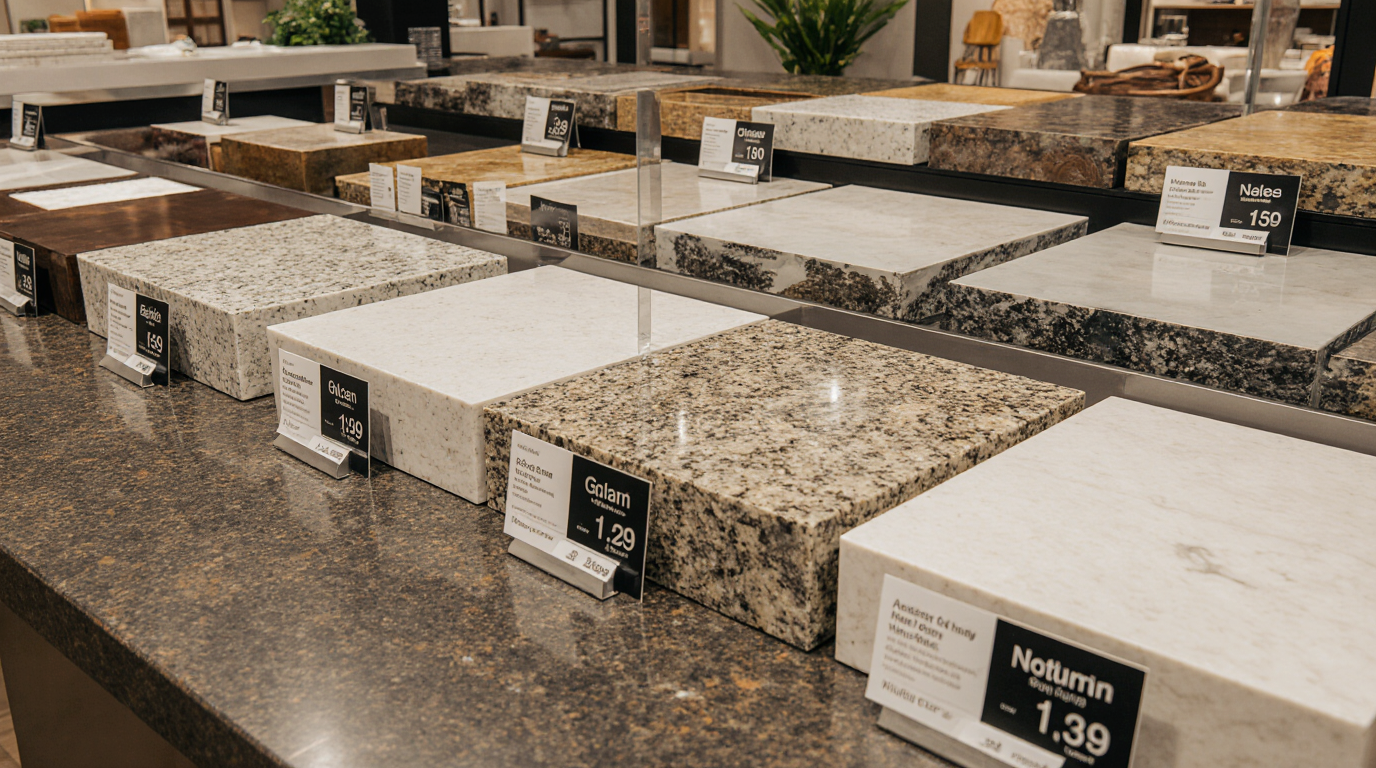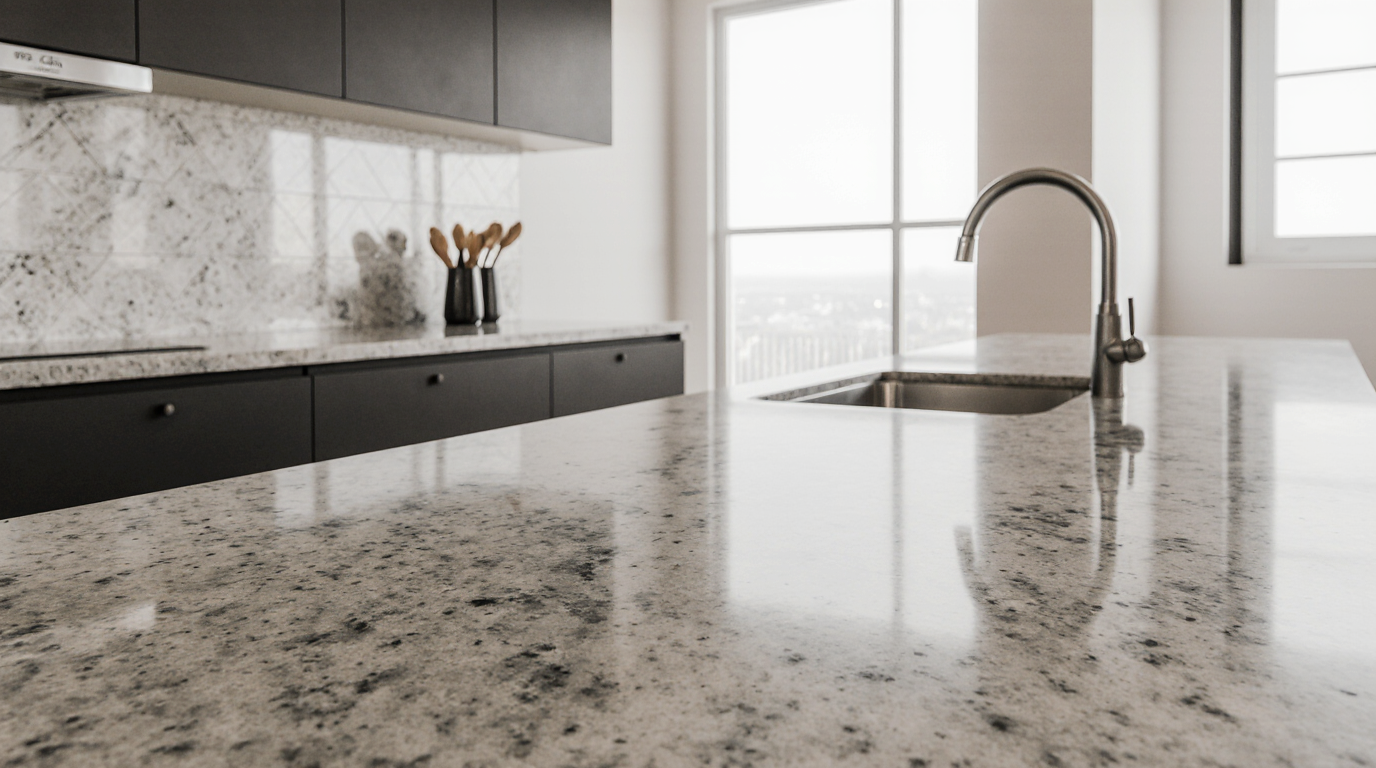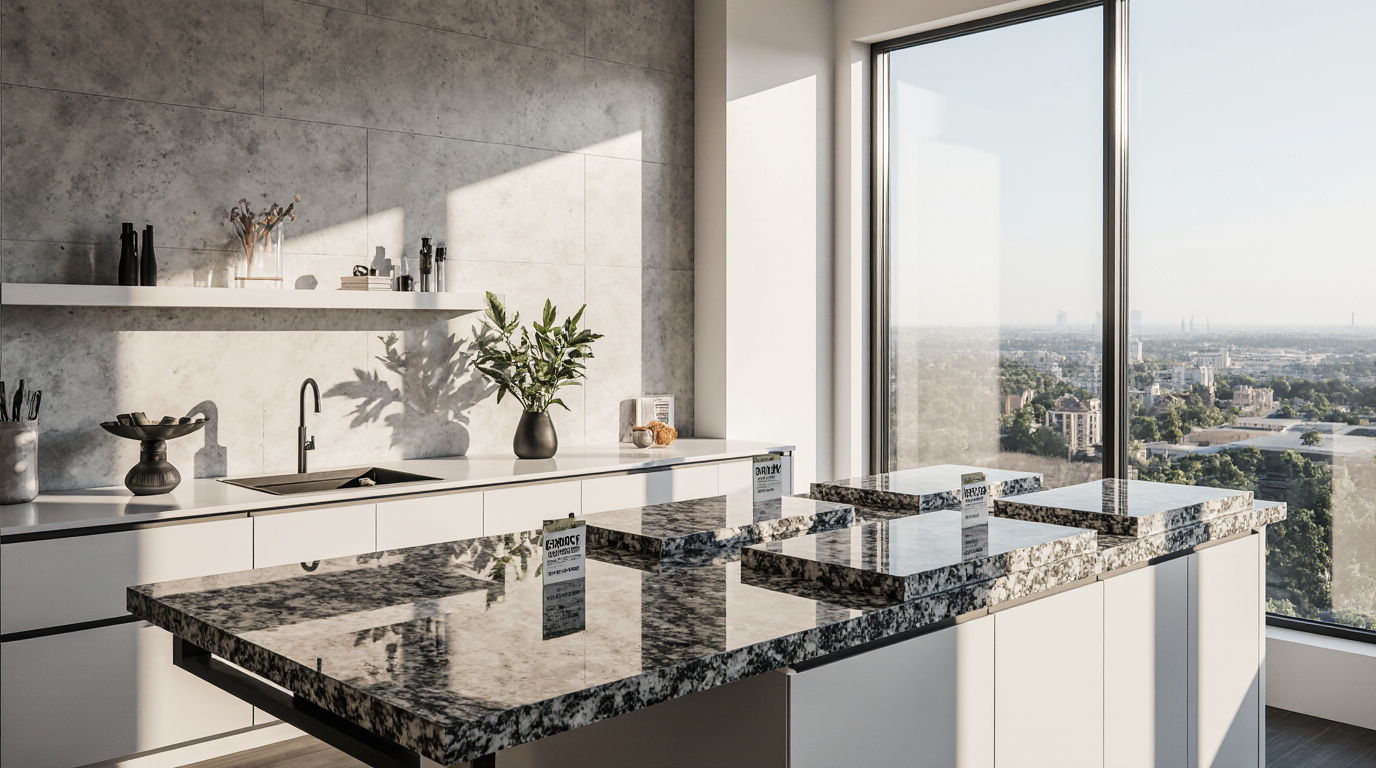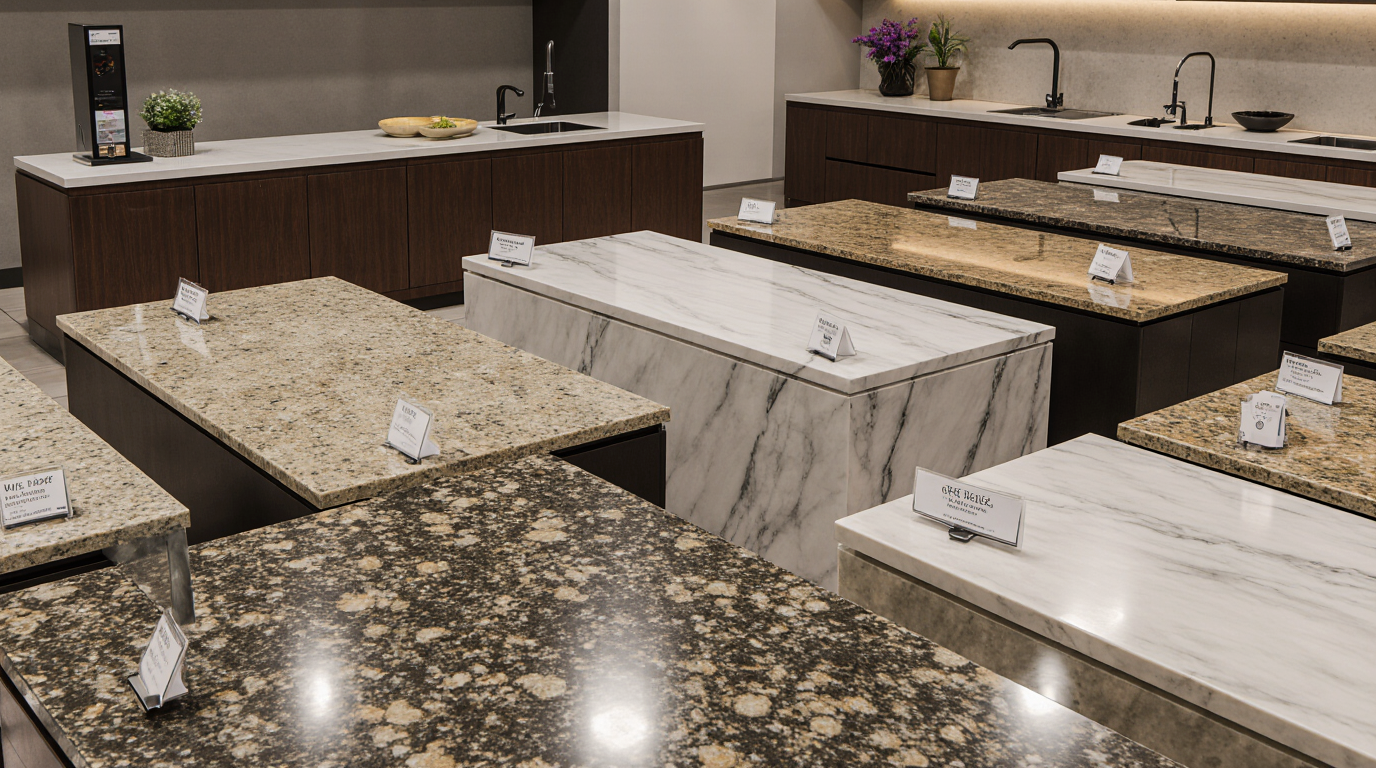Counter Top Prices Sarasota County FL

Pricing of Counter Tops
Analyzing countertop pricing involves an in-depth assessment of material quality, artisan workmanship, and enduring value that each surface contributes to residential or professional environments. Individuals planning kitchen or workspace renovations consider the visual allure, robustness, ongoing maintenance, and installation expenses simultaneously. Popular materials such as granite, quartz, marble, and concrete each carry a unique price range influenced by factors like rarity, finish, thickness, and edge design. Granite continues to be a preferred material due to its luxurious appeal and durability, with costs fluctuating according to provenance and veining complexity. Engineered quartz, known for durability and minimal upkeep, usually demands a higher starting price reflecting its long-lasting performance and contemporary design versatility.
When calculating countertop costs, one must consider both material and labor. The production process includes meticulous cutting, edge profiling, and occasionally bespoke inlays or distinctive patterning, contributing significantly to the total cost. High-end countertops such as marble and onyx are particularly labor-intensive, demanding skilled artisans to ensure flawless installation. Logistics for large, dense slabs also factor into pricing, often escalating costs when procuring unique or imported stones. Clients seeking premium or imported materials often find that countertop prices reflect not only the inherent value of the material but also the craftsmanship required to transform it into a functional surface.
The degree of customization also plays a pivotal role in shaping countertop pricing. Personalized countertops enable selection of precise sizing, edge styles, and embedded elements such as sinks or cooking surfaces. Custom design options create unparalleled versatility, balancing practicality with a visually impactful presence. Customization can include complex waterfall edges, multi-tiered islands, or intricate veining patterns, each influencing the labor cost. Engineered surfaces may also vary in cost when clients request unique patterns or color schemes, illustrating how personal aesthetics impact financial planning.
Durability and maintenance requirements play a central role in determining the cost-effectiveness of various countertops. Highly durable materials including granite, engineered quartz, and top-tier laminates resist stains and wear, frequently validating elevated initial prices. Natural stones like marble require more care but bring a timeless elegance that many homeowners consider a worthwhile investment. The anticipated lifespan and ease of upkeep are crucial when assessing countertop prices, as a material that maintains its beauty and functionality over decades provides superior long-term value. Investing in resilient surfaces can reduce the need for repairs or replacements, balancing higher upfront costs against future savings.
Countertop pricing is heavily influenced by spatial dimensions and layout complexity. Large islands or expansive countertops for commercial settings inherently increase material and labor costs. Complex layouts requiring multiple seams, cutouts for appliances, or irregular shapes can further escalate expenses. Every additional element, from custom sinks to integrated drainage systems, contributes to the overall price. Contractors and fabricators often provide detailed quotes, helping clients understand how dimensions, material choice, and design complexity interact to determine the final countertop pricing.
Countertop pricing is shaped by prevailing market dynamics and local material accessibility. Rare or imported stones, including exotic granites, often carry higher costs owing to limited availability and transport complexity. Local market conditions, import taxes, and the presence of skilled fabricators can all sway prices. Modern engineered materials offer elegant, cost-efficient solutions, enabling high-end design appearances within practical budgets. Selecting materials that harmonize exclusivity, style, and function ensures that countertop expenditures reflect both aesthetic ambition and financial strategy.
Environmental considerations are becoming increasingly important in the realm of countertops. Eco-friendly fabrication methods, including sustainable and recycled materials, influence cost yet enhance product value for conscious buyers. Materials such as recycled glass countertops or sustainably harvested quartz provide unique visual appeal while supporting green practices. Prioritizing eco-conscious materials might raise initial pricing, while reinforcing property attractiveness and resale value. Eco-conscious designs also appeal to a growing segment of homeowners and designers seeking to combine luxury with responsible living.
Professional installation is a decisive element in determining true countertop value. Without precise installation, even premium surfaces can suffer damage, necessitating expensive fixes or shortening lifespan. Experienced professionals deliver flawless installation through careful leveling, sealing, and secure mounting, ensuring material performance. Pricing in areas with seasoned fabricators incorporates labor expertise, underscoring the precision and care necessary for high-quality installation. Accurate and professional installation converts high-cost materials into enduring, functional, and visually appealing surfaces.
Comprehensive evaluation of materials, personalization, installation precision, and care requirements dictates countertop costs. Awareness of cost drivers empowers clients to strategically balance style, performance, and expenditure. Selecting granite, quartz, or marble requires grasping how material excellence, artisan skill, and longevity combine to define value. Investing wisely in countertops transforms any kitchen or workspace into a sophisticated, enduring environment that reflects both style and practicality.




